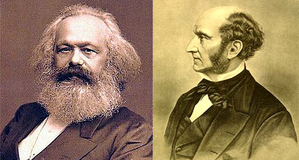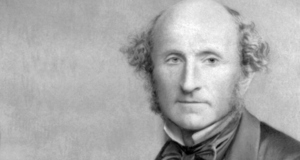Comparing the Political Theories of Lao Tzu and Machiavelli: Arguments in Favor of Political Rights and Fair Leadership
By
2016, Vol. 8 No. 01 | pg. 2/2 | « Another philosopher, Aristotle, claims that the qualities of a good leader includes a genuine concern for the welfare of the state in its entirety.56 Unlike Machiavelli’s claim that the interests of the common people should be the primary concern of a leader, Aristotle believes that no group should be favored, and rather, the concerns of all people, from various classes, should be equally considered.57 I believe his understanding of leadership, trumps Machiavelli’s notions concerning this matter, because by taking into account the concerns of all of their subjects, a leader can better ensure the common good, and prevent revolution or social unrest from occurring.58 Also, in a similar vein, but still in contrast to Machiavelli’s belief, that popular opinion should concern a ruler the most, Aristotle believes that a leader should take the opinions of all of their subjects into consideration.59 This is due to his belief that all people have the potential to contribute valuable insights into how government affects them and their communities, with greater accuracy than if a leader tried to do this alone.60 Hence, a leader who is truly dedicated to serving their nation, should do so by respecting the views of all its members, which, in turn, can help to ensure that it develops into a more ideal political community.61 Once again, I believe this is a better method for a leader to employ, instead of Machiavelli’s claim that a leader should only commit themselves to those views which are conducive to their political longevity.62 This is because Aristotle’s vision of leadership helps to ensure that both a nation’s leader and its members will continue to endure.63 Finally, by leading in such a way, a leader helps to guarantee the existence of the state for years to come, instead of only maintaining their time in power.64 Furthermore, Aristotle does not believe that a leader should take any means necessary to maintain their power, as Machiavelli does, but rather he claims that he/she ought to be an embodiment of the law.65 This is in order to maintain social cohesion which he believes is, in part, a byproduct of the correct application of justice.66 Hence, to him, people who are ethical are the best candidates for political leadership, and because of this, one many infer that a ruler should govern by moral means instead immoral ones.67 In fact, one may further claim that a ruler should not govern immorally because, to Aristotle, this deters all members of a state from achieving self-sufficiency and personal happiness.68 Also, in order to ensure that fairness is always properly executed, Aristotle also claims that a leader’s power should be restricted by the people in the form of a constitution.69One may note that this too is in opposition to Machiavelli’s idea of a good leader being one who can eliminate their competition in order to possess absolute power, so that social harmony can be maintained no matter the cost. Hence, it can be the case, that to Machiavelli, something such as tyrannical rule is not necessarily a danger to the state, whereas, Aristotle believes that this mode of governing encourages a disregard for the law, which can quickly lead to a society’s breakdown.70 Finally, Aristotle’s disapproval of tyrannical leadership, is, in my opinion, better than Machiavelli’s support of it, because he focuses on how a leader can progress and help the state as a whole, instead of just egotistically serving themselves. With this essay, I have hoped to show the similarities between the political philosophy of Lao Tzu and Machiavelli. By doing so, I have also hoped to show how their comparative theories are of a different nature than J.S. Mill’s or Aristotle’s notions regarding political power and just leadership. Finally, by arguing in favor of Mill’s and Aristotle’s claims as opposed to those of Lao Tzu or Machiavelli, I have intended to give an adequate defense of personal liberties as well as leadership based upon fairness. ReferencesAristotle. Richard McKeon ed., Politics. (New York: Random House., 1941). 1127-1325 Machiavelli, Niccolo. Daniel Donno trans., The Prince. (New York: Bantam Dell., 1966). 15-97 Mill, John Stuart. Currin V. Shields ed., On Liberty. (New Jersey: Prentice-Hall., 1997). 3-141 Tzu, Lao. B. Boison comp., Lao Tzu’s Tao-Teh-Ching: A Parallel Translation Collection. (Boston: GNOMAD Publishing., 1996). 1-163 Endnotes1.) L. Tzu. B. Boison comp., Lao Tzu’s Tao-Teh-Ching: A Parallel Translation Collection. (Boston: GNOMAD Publishing., 1996). Chapter 36 & N. Machiavelli. D. Donno trans., The Prince. (New York: Bantam Dell., 1966). 66 2.) L. Tzu. B. Boison comp., Lao Tzu’s Tao-Teh-Ching: A Parallel Translation Collection. (Boston: GNOMAD Publishing., 1996). Chapter 3 3.) Ibid. 4.) Ibid. 5.) Ibid. Chapters 29, 47, & 48 6.) Ibid. Chapters 17, 22, 24, 26, & 36 7.) Ibid. Chapters 17 & 37 8.) Ibid. Chapters 18 & 49 9.) Ibid. Chapter 80 10.) Ibid. Chapter 45 11.) Ibid. 12.) Ibid. Chapters 29-30 13.) Ibid. Chapters 13, 75, & 78 14.) Ibid. Chapters 24, 26, & 72 15.) N. Machiavelli. D. Donno trans., The Prince. (New York: Bantam Dell., 1966). 17 16.) Ibid. 17.) Ibid. 18.) Ibid. 18 19.) Ibid. 20.) Ibid. 19 21.) Ibid. 86 22.) Ibid. 28 23.) Ibid. 31 24.) Ibid. 25.) Ibid. 26 26.) Ibid. 27.) Ibid. 39 28.) Ibid. 29.) Ibid. 39 & 42-43 30.) Ibid. 43 31.) Ibid. 44 & 48 32.) Ibid. 66 & 86 33.) Ibid. 59-60 34.) Ibid. 61 35.) Ibid. 62 36.) Ibid. 37.) Ibid. 63 38.) Ibid. 63-65 39.) Ibid. 64 40.) Ibid. 41.) Ibid. 66 42.) Ibid. 65-66 43.) Ibid. 65 44.) Ibid. 66 45.) Ibid. 67 & 86 46.) J.S. Mill. C. V. Shields ed., On Liberty. (New Jersey: Prentice-Hall., 1997). 68 47.) Ibid. 13-14, 43-44, & 133 48.) Ibid. 69 & 133 49.) Ibid. 138-139 50.) Ibid. 13 & 68 51.) Ibid. 14, 16, 94, & 133-135 52.) Ibid. 139 53.) Ibid. 7, 13, 18, & 45 54.) Ibid. 19-21, 56, 64, & 67-69 55.) Ibid. 21 56.) Aristotle. Richard McKeon ed., Politics. (New York: Random House., 1941). 1189 57.) Ibid. 1187 58.) Ibid. 1184-1185 & 1239-1241 59.) Ibid. 1189-1190 60.) Ibid. 1202-1203 61.) Ibid. 1187 62.) Ibid. 63.) Ibid. 64.) Ibid. 1281-1282 65.) Ibid. 1198 66.) Ibid. 67.) Ibid. 1127-1130 68.) Ibid. 69.) Ibid. 1199-1202 70.) Ibid. 1240-1241 Suggested Reading from Inquiries Journal
Inquiries Journal provides undergraduate and graduate students around the world a platform for the wide dissemination of academic work over a range of core disciplines. Representing the work of students from hundreds of institutions around the globe, Inquiries Journal's large database of academic articles is completely free. Learn more | Blog | Submit Latest in Philosophy |


















